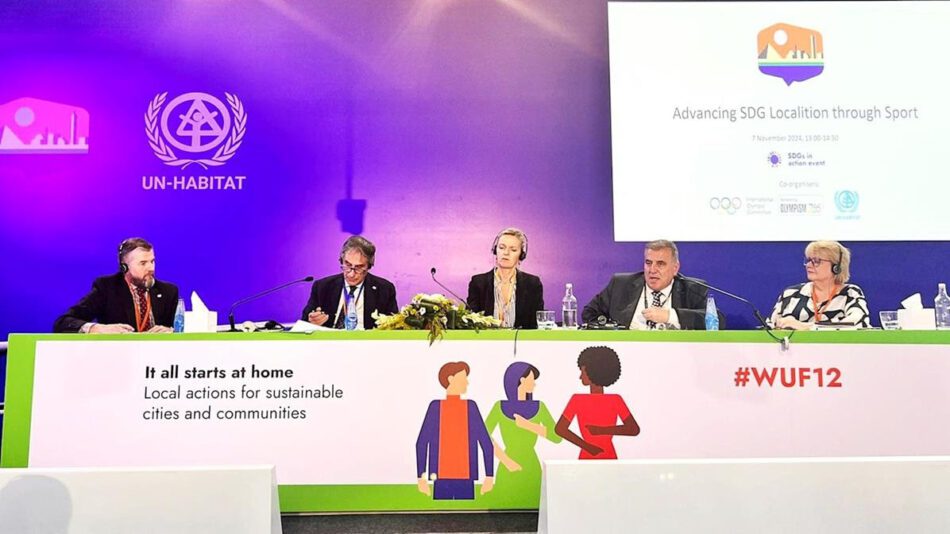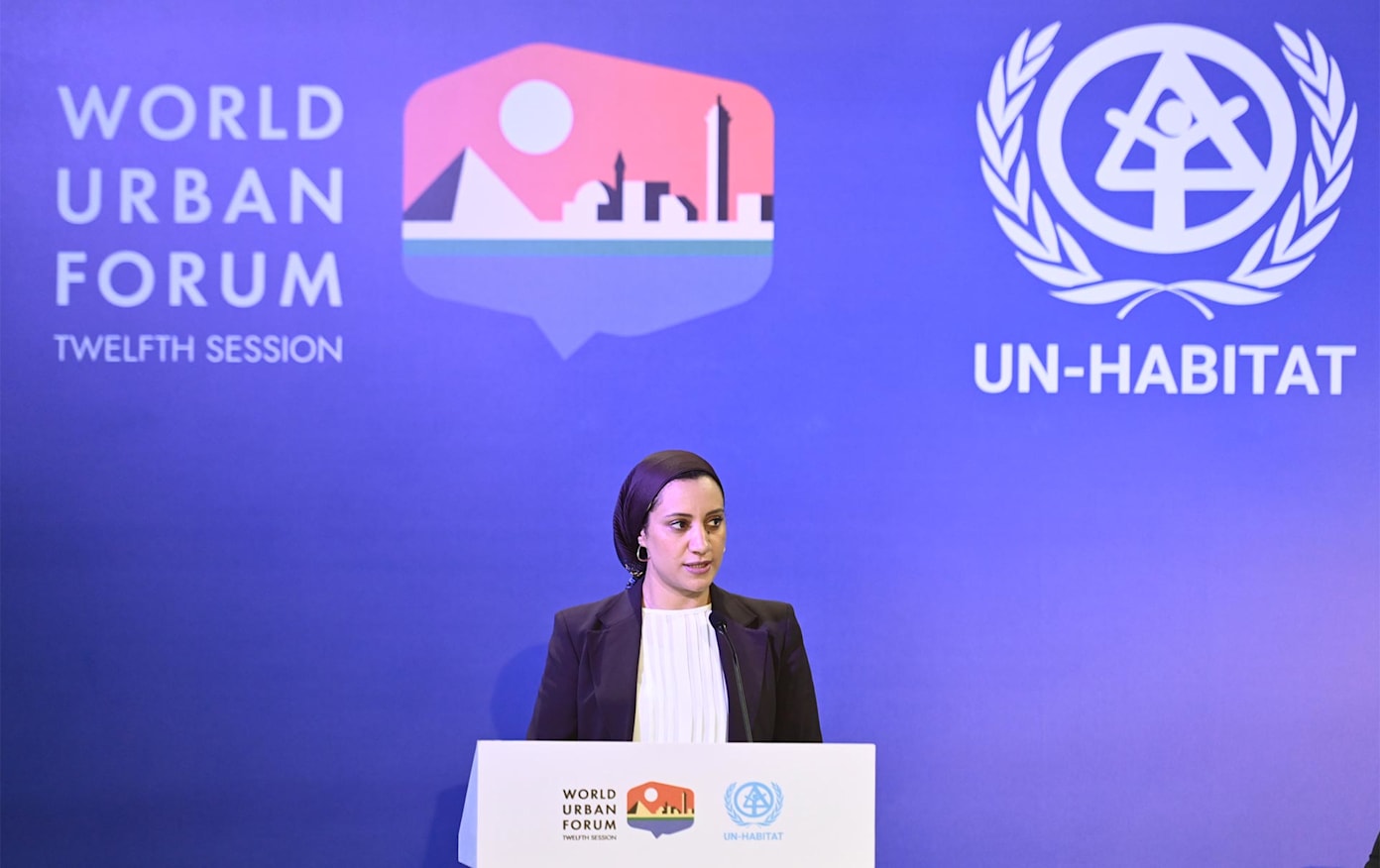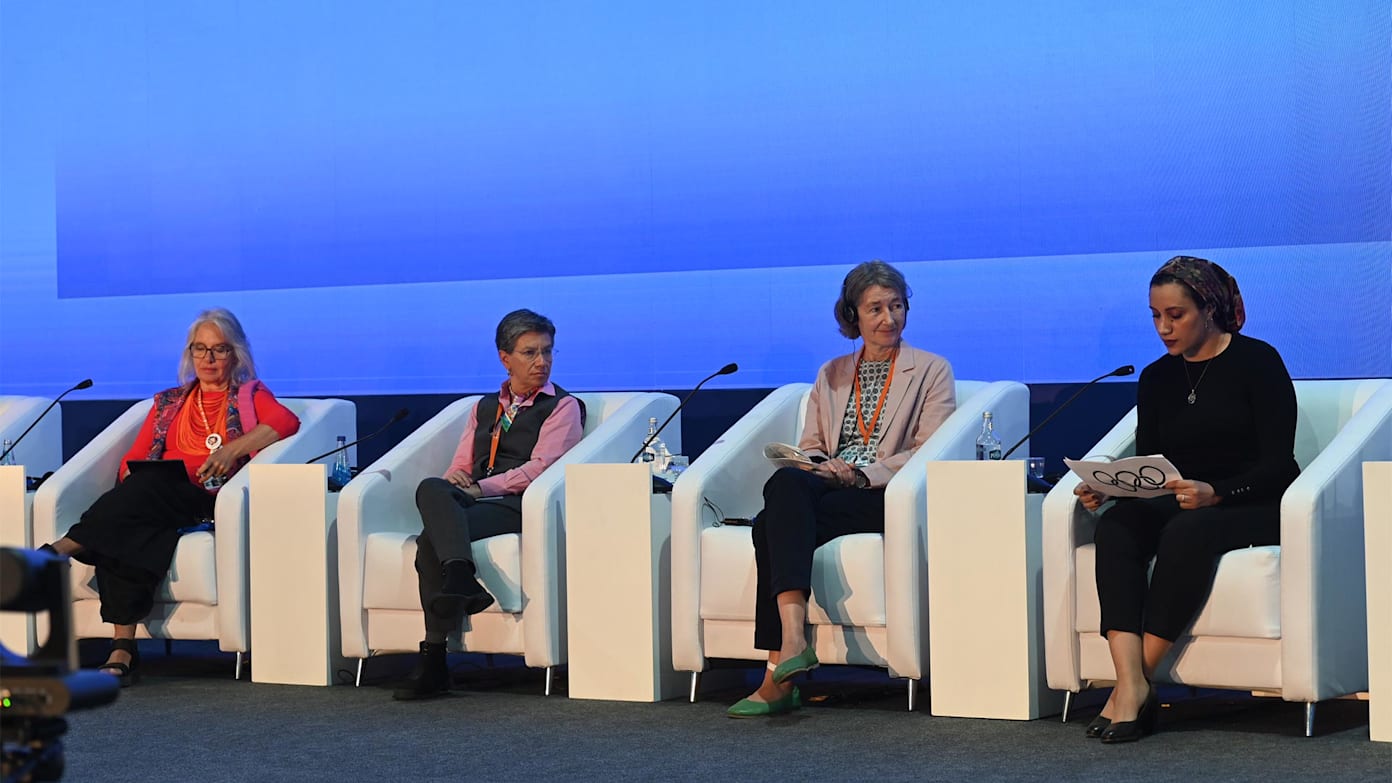Sport takes prominent place at World Urban Forum

11 November 2024 – Sport and its contribution to urban development and the United Nations (UN) Sustainable Development Goals (SDGs) was part of the many discussions held at the World Urban Forum (WUF) last week. Taking part in four major sessions, the International Olympic Committee (IOC) led the conversation on how best to leverage sport as a catalyst for sustainable urban growth.
Advancing the SDGs through sport
Aya Medany, IOC Member and three-time Olympian Aya Medany, who attended the WUF for the IOC, spoke at a session on “Advancing the Localisation of the SDGs Through Sport”, which offered delegates a chance to share insights, learning and collaboration opportunities on harnessing sport as a driver for sustainable urban development.
“A city or community without safe and inclusive access to the benefits of sport, physical activity and active lifestyles is a city or community not fully realising all opportunities to localise and realise sustainable development for all.”
Aya Medany – IOC Member and three-time Olympian

Panellists also included Audrey Guiral-Naepels from the French Development Agency (AFD), which worked closely with the IOC on the Sport4SD Summit ahead of the Olympic Games Paris 2024, resulting in the Paris Agreement for Sport and Sustainable Development. Claudio Barbaro, Undersecretary of State, Italian Ministry of Environment and Energy Security; Ahmad Malkawi (AMK), City Manager, Municipality of Amman; and Dy Currie from Brisbane City Council, currently preparing for the Olympic Games Brisbane 2032, also took part in the discussion.

In her opening remarks, Medany summarised how hosting the Olympic Games can help cities and nations advance the SDGs and enhance the positive impacts of sport: “As was evidenced in Paris and across France this year, hosting the Olympic Games can be a powerful catalyst,” she said. “Importantly, this positive impact is not limited to cities and countries hosting the Games. With effective policies, programmes and infrastructure development, these benefits can be experienced by a diverse range of people across a diverse range of cities and communities.
“Varied analysis and research have shown that a significant social return on investment can be garnered from sport and sustainable development policies, programmes and infrastructure, from a 3:1 return to, in many scenarios, a much higher return.”
“Sport has the power to mobilise communities, especially our youth, to tackle the challenge of building inclusive and accessible cities. This is a call to action: through strong partnerships, innovative financing, and empowering local capacities, we can harness sport as a force for sustainable urban development. Together, we can create cities that are resilient, welcoming, and accessible to all.”
Michal Mlynár – Deputy Executive Director UN-Habitat
Legacies and future plans
During the sessions devoted expressly to sport and urban planning, experts in planning, legacy and urban transformation from the past and future Olympic cities of Barcelona, London, Paris, Los Angeles and Brisbane acknowledged the power of the Olympic and Paralympic Games to deliver lasting benefits that can transform a community, its image and its infrastructure.
Paris 2024 set new benchmarks for legacy the Olympic Games can create, as highlighted by Medany: “The carbon footprint of Paris 2024 was reduced by 50 per cent compared to previous editions. A critical component in achieving this was that 95 per cent of the Olympic venues were existing or temporary facilities.
The Games were also a catalyst for making sport accessible and beneficial for more people, particularly young people. In her remarks, Marie Barsacq, Director of Impact and Legacy for the Paris 2024 Organising Committee, highlighted “the implementation of a daily 30-minute exercise period at all French primary schools and the construction of 5,000 local sports grounds across the country, as just two of multiple examples”.

Sport for Sustainable Urban Development
The IOC’s participation in the WUF is anchored by the Sport for Sustainable Urban Development Initiative, an ongoing collaboration between the IOC and UN-Habitat as part of the two organisations’ five-year Memorandum of Understanding. The initiative aims to integrate sport and physical activity into daily life, fostering healthier, happier and more inclusive cities and urban communities.
This collaboration is driven by the Olympic Agenda 2020+5 roadmap that calls for the Olympic Movement to: “Strengthen the role of sport as an important enabler for the UN Sustainable Development Goals”. The recommendation has inspired the creation of the IOC’s Olympism365 strategy delivering six thematic portfolios of sport-for-social-development projects across 75 countries around the world.
The World Urban Forum
A record 37,000 participants from 182 countries gathered in Cairo for the WUF, which takes place every two years and is convened by the UN Human Settlements Programme (UN-Habitat). The Forum was established in 2001 to examine one of the most pressing issues facing the world: rapid urbanisation and its impact on communities, cities, economies, climate change and policies.
The theme of WUF12 was “It all starts at home: Local actions for sustainable cities and communities”, and the programme of talks, discussions and debates centred on localising the UN’s SDGs by emphasising the importance of community-led solutions to global challenges.





